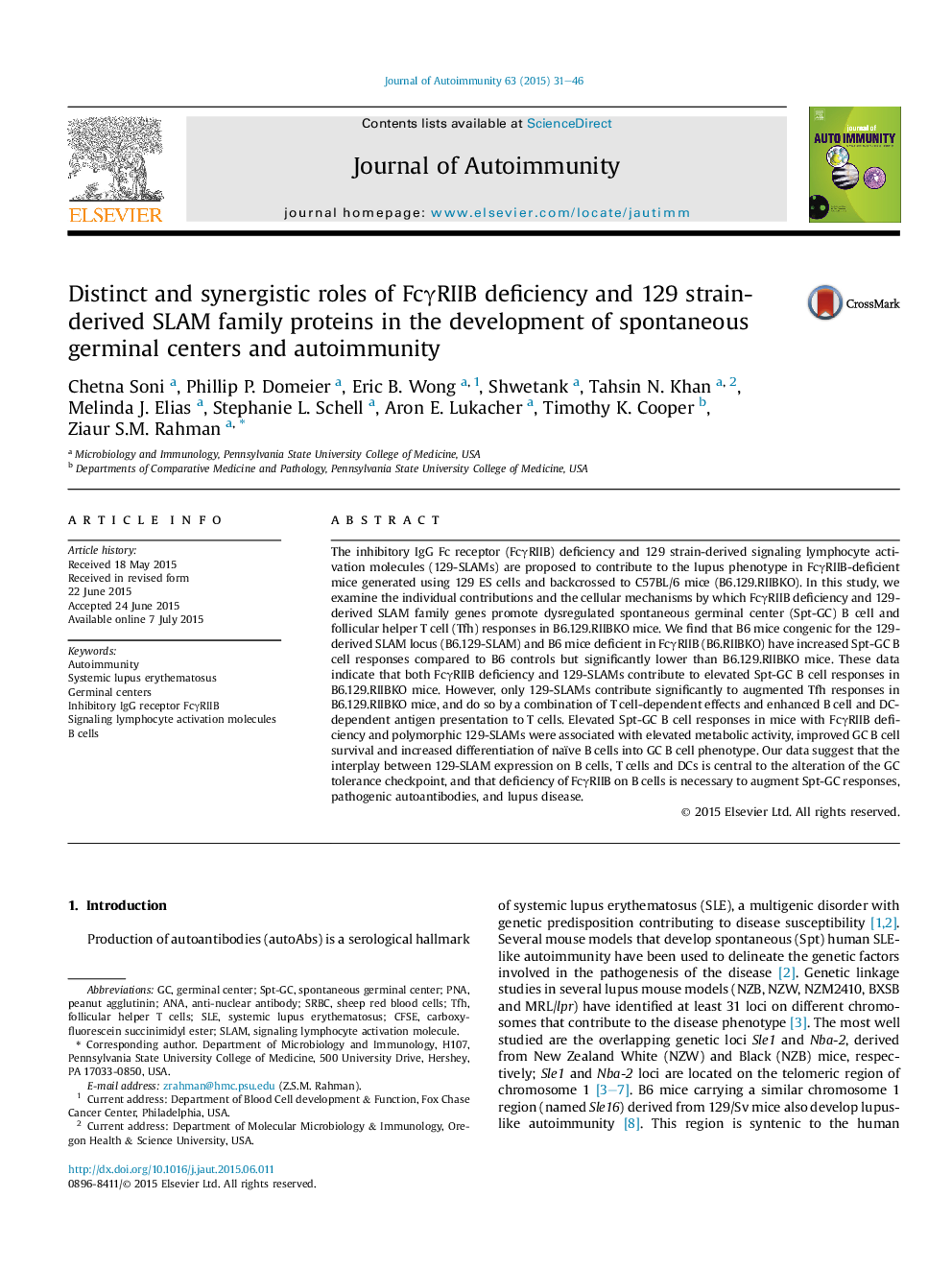| Article ID | Journal | Published Year | Pages | File Type |
|---|---|---|---|---|
| 6119203 | Journal of Autoimmunity | 2015 | 16 Pages |
Abstract
The inhibitory IgG Fc receptor (FcγRIIB) deficiency and 129 strain-derived signaling lymphocyte activation molecules (129-SLAMs) are proposed to contribute to the lupus phenotype in FcγRIIB-deficient mice generated using 129 ES cells and backcrossed to C57BL/6 mice (B6.129.RIIBKO). In this study, we examine the individual contributions and the cellular mechanisms by which FcγRIIB deficiency and 129-derived SLAM family genes promote dysregulated spontaneous germinal center (Spt-GC) B cell and follicular helper T cell (Tfh) responses in B6.129.RIIBKO mice. We find that B6 mice congenic for the 129-derived SLAM locus (B6.129-SLAM) and B6 mice deficient in FcγRIIB (B6.RIIBKO) have increased Spt-GC B cell responses compared to B6 controls but significantly lower than B6.129.RIIBKO mice. These data indicate that both FcγRIIB deficiency and 129-SLAMs contribute to elevated Spt-GC B cell responses in B6.129.RIIBKO mice. However, only 129-SLAMs contribute significantly to augmented Tfh responses in B6.129.RIIBKO mice, and do so by a combination of T cell-dependent effects and enhanced B cell and DC-dependent antigen presentation to T cells. Elevated Spt-GC B cell responses in mice with FcγRIIB deficiency and polymorphic 129-SLAMs were associated with elevated metabolic activity, improved GC B cell survival and increased differentiation of naïve B cells into GC B cell phenotype. Our data suggest that the interplay between 129-SLAM expression on B cells, T cells and DCs is central to the alteration of the GC tolerance checkpoint, and that deficiency of FcγRIIB on B cells is necessary to augment Spt-GC responses, pathogenic autoantibodies, and lupus disease.
Keywords
Related Topics
Life Sciences
Immunology and Microbiology
Immunology
Authors
Chetna Soni, Phillip P. Domeier, Eric B. Wong, Shwetank Shwetank, Tahsin N. Khan, Melinda J. Elias, Stephanie L. Schell, Aron E. Lukacher, Timothy K. Cooper, Ziaur S.M. Rahman,
